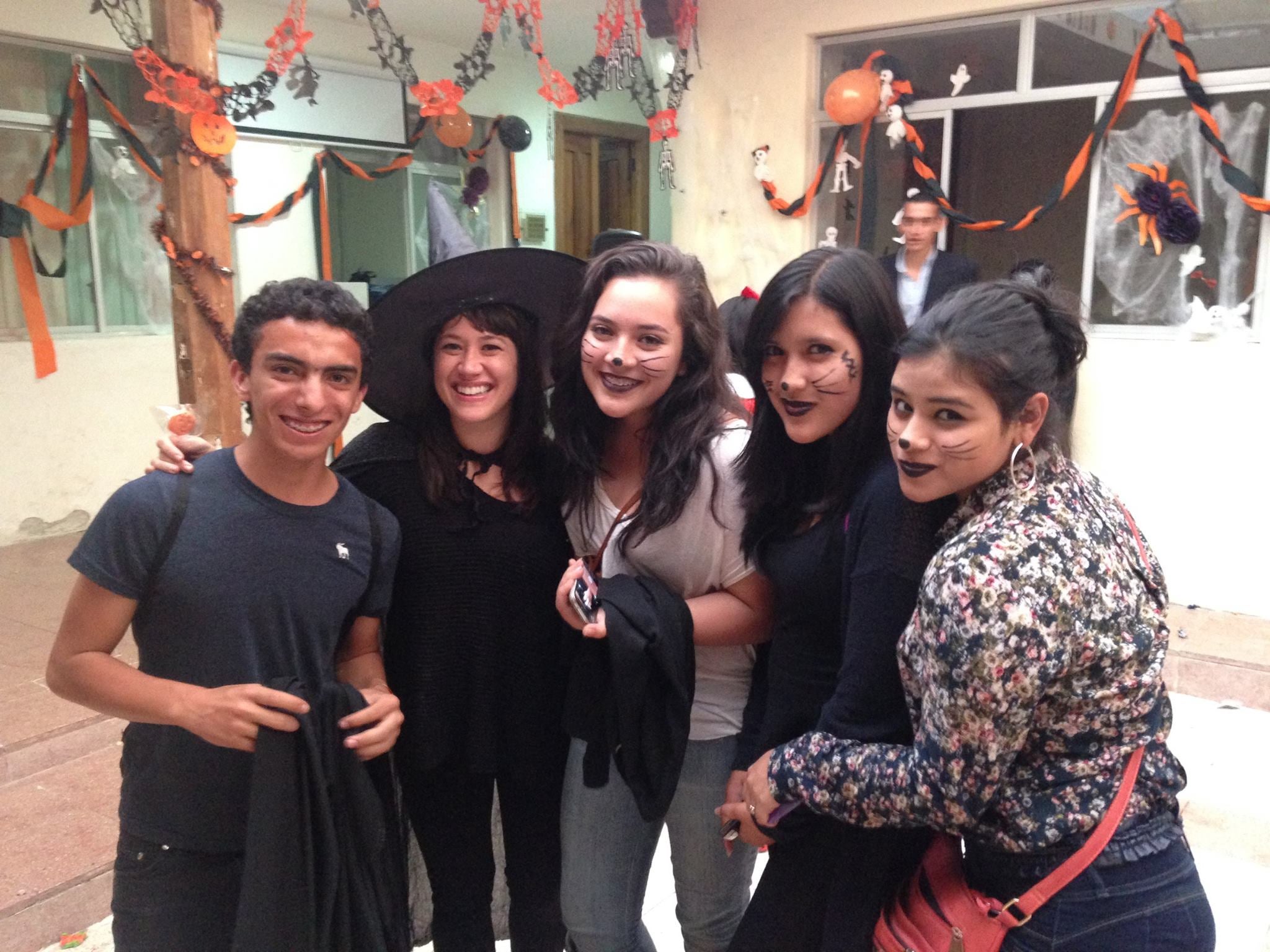The English Language Fellow Program’s connection to public diplomacy helps Fellows develop new skills inside and outside of the classroom. Ali Carella, Ph.D, served as a Fellow from 2014-2015 in Loja, Ecuador at the Centro Equatoriano Norteamericano Global Quality English School. Her experiences as a Fellow helped launch her career in research advocating for marginalized communities in the United States.
Ali’s primary project as a Fellow was providing a series of trainings to more than 500 teachers at a time in large settings. “I had to learn to engage my audience in a very different way to reach my goal of building understanding on best practices in English language pedagogy,” Ali said. This exciting challenge helped Alexis gain a new educational and pedagogical perspective. Ali worked with the Ministry of Education in Ecuador as well as the U.S. Embassy to help train teachers to increase their pedagogical skills and advance educational outreach opportunities for high-achieving, yet impoverished, Ecuadorian students.
Beyond improving her professional training and leadership skills, the English Language Fellow Program helped Ali develop important life skills as well. “The fellowship allowed me to build my independence in a way I could not have anticipated. It also tested me to increase my problem solving skills and not be afraid to take risks and dedicate time to learn from my mistakes.”
Many Fellows are able to travel within their country of assignment during their fellowship to attend or present at conferences, to lead workshops, and for other professional opportunities. Ali, for example, was able to “travel to a variety of towns throughout Ecuador. My fondest memories include our first National Spelling Bee, journeys to the indigenous town of Saraguro and eating quimbolitos with my colleagues.”
For Ali, the greatest aspect of her fellowship was the people she worked with and met while traveling abroad. “My fondest memories revolve around the relationships I built with local staff and my students. I come from a large city, so living in Loja was a big transition for me and they were so incredibly welcoming and supportive.”
Living in a new, more rural environment helped Ali develop important professional and personal skills in a new context. “The relationships I built with various stakeholders, from the government to the local level were very impactful. I learned a great deal about citizen diplomacy. This position gave me a great deal of insight into the role of diplomacy at the international level and the incredible affordances of connecting countries that share a common goal.” These relationship-building experiences and the new skills she developed on assignment were invaluable in leading Ali to explore an exciting new career path upon her return to the U.S. The fellowship helped Ali transition from her role as a teacher trainer and manager of wide-reaching educational efforts to full time research.
Prior to the fellowship, Ali had been working in academia as a researcher. The fellowship helped Ali combine her interests of both research and direct service. Ali used her experience as a Fellow to secure a position doing what she loves: applied research. Currently, she is a Senior Research Associate with the Social IMPACT Research Center at Heartland Alliance in Chicago. “We are a large human rights, anti-poverty non-for-profit that serves thousands of throughout the city and world. I work with a team of researchers and policymakers to find solutions to community challenges and impact social change.” The enriching cultural and diplomatic experiences of Ali’s fellowship led her to an exciting new career that allows her to help the communities who need it most.


